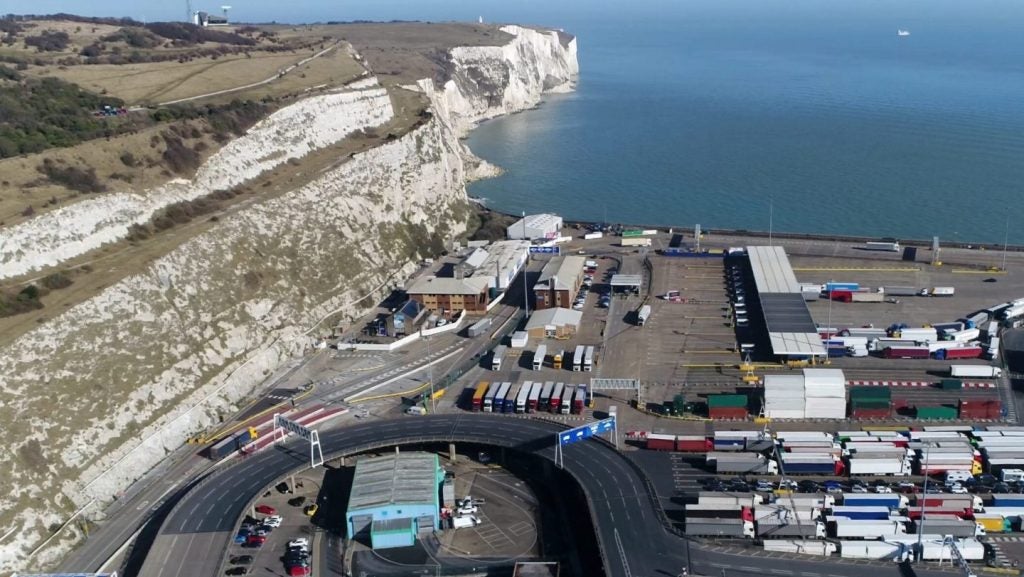
Food supply chains between the UK and the EU and between Great Britain and Northern Ireland face “re-engineering” this year unless there are changes to the new regulations governing trade flows in the wake of Brexit, trade body The Food and Drink Federation has said.
Ian Wright, the chief executive of the FDF, which represents food and soft-drink manufacturers operating in the UK, told British lawmakers the trade deal between the country and the EU – and the introduction of a special protocol for Northern Ireland – and made it harder to ship products due to increased paperwork.
Speaking to the UK House of Commons’ Future Relationship with the EU Committee yesterday (13 January), Wright also flagged the problems some in the supply chain are facing on rules of origin, covering goods from the EU that are processed at UK distribution hubs and re-exported to other EU member states.
“Our biggest single problem is the fact that nobody had the chance to work with this deal, to rehearse how to do checks,” he said, reflecting on the publication of the UK-EU Trade and Co-operation Agreement on Christmas Eve ahead of the 31 December deadline.
“One of our biggest [member] companies – a very well-prepared, international, global company, very, very well-known, was trying to do a consignment of product out of the UK to the EU at the start of this week. A job which normally took them three hours before the deal was done has taken them five days so far, such as the nature of the impenetrability of the paperwork.”
How well do you really know your competitors?
Access the most comprehensive Company Profiles on the market, powered by GlobalData. Save hours of research. Gain competitive edge.

Thank you!
Your download email will arrive shortly
Not ready to buy yet? Download a free sample
We are confident about the unique quality of our Company Profiles. However, we want you to make the most beneficial decision for your business, so we offer a free sample that you can download by submitting the below form
By GlobalDataSee Also:
Wright continued: “That’s our biggest problem. The subsidiary problem, I think, is that the settlement itself, particularly on rules of origin is not as generous as we might have hoped, and is therefore replete with difficulties hidden away in the documentation that are still being assessed. That is the simple position we’re in. We weren’t ready but we could not have been ready because nobody knew what the deal said, until almost the moment that it was implemented.”
Without revisions to the agreement, including to the Northern Ireland protocol, food manufacturers face higher costs, Wright warned, and there will be higher costs and “significant changes” to the food-supply chain.
He added: “Unless the deal changes in some material way, we’re going to see the re-engineering of almost all the EU-UK and GB-NI supply chains over the next six to nine months. There will be easements, there will be fixes, there will be work-arounds but, essentially, if nothing changes in the composition of the deal, we will have to see a significant re-engineering, which, in the short term, means that there will be costs and time wasted for supply to reach the shelves and, in the long term will be costs and changes – and fairly significant changes – to the way in which manufacturers in the UK and in the EU interact when they’re producing product.”
Asked what that would mean for jobs in the UK supply chain, Wright responded: “Probably different jobs and it will be disruptive. I think, in the end, there will be fewer jobs in the parts of the supply chain that supplies the EU – and it’s possible that there may be extra jobs in the part of the supply chain which only supplies the UK.
"It's difficult to unravel that against the background of the current economic difficulties because you won't be re-engineering in a period of expansion in the UK market, you'll be re-engineering in a period of, if not contraction, consolidation."
Since the UK-EU trade deal came into force, retailers in Northern Ireland have faced shortages of some products. There have been hold-ups at customs in Northern Ireland because hauliers have not had the right post-Brexit paperwork to hand, although anecdotal evidence suggests the empty supermarket shelves in the province have also been caused by some suppliers sitting back and waiting for customs teething problems to be sorted out before resuming deliveries.
Andrew Opie, director of food and sustainability at The British Retail Consortium, told the Committee the shortages had been "pretty much overcome" but warned the problem could return when a Brexit 'grace period', which has exempted retailers from some bureaucratic changes, ends on 31 March.
Earlier this week, UK supermarket chiefs wrote to UK Cabinet Officer Minister Michael Gove to warn of "significant disruption to food supplies" to Northern Ireland because of "unworkable" post-Brexit border arrangements.
Opie told MPs yesterday: "We do need a long-term, sustainable solution to how we move product from Great Britain into Northern Ireland to avoid significant disruption coming, particularly from 1 April onwards. We're pretty confident that we've overcome the problems that we had but, absolutely, if we do not find a solution and a workable solution for retailers in the next couple of months, we do face significant disruption in Northern Ireland."






